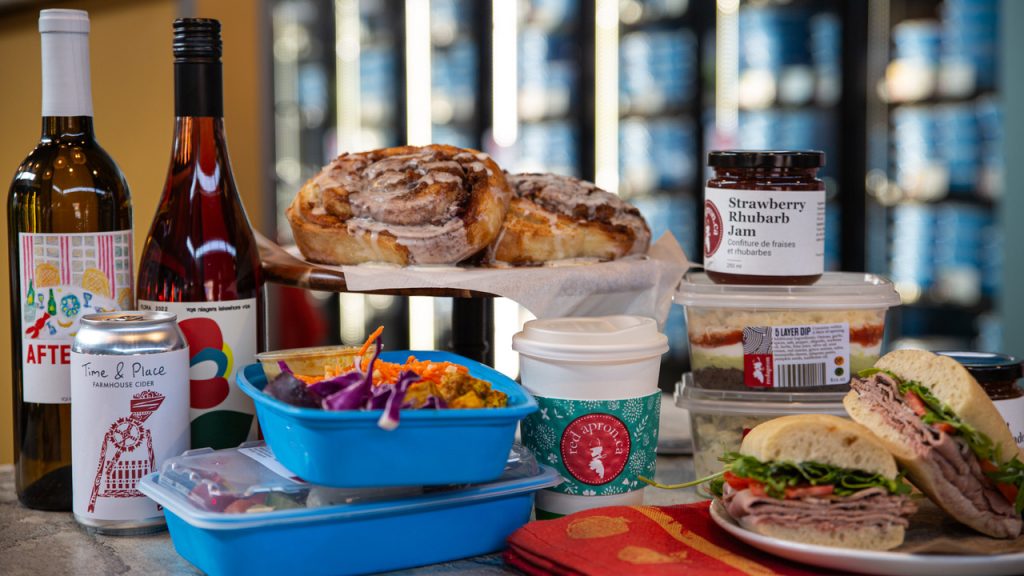Union calls GM decision to cut one shift at Oshawa plant ‘reckless’

Posted May 2, 2025 07:57:33 AM.
Last Updated May 2, 2025 02:24:40 PM.
The union that represents approximately 3,000 auto workers at the General Motors plant in Oshawa says the automaker’s decision to reduce the number of shifts at the plant is a “reckless” one which will have a ripple effect across the entire auto supply network.
Unifor said in a statement released Friday morning that the Oshawa Assembly Plant will go from three shifts to two starting this fall, citing tariffs imposed by U.S. President Donald Trump.
“Cutting the third shift at Oshawa Assembly is a reckless decision that deals a direct blow to our members and threatens to ripple through the entire auto parts supplier network,” said Unifor National President Lana Payne. “GM needs to reverse this short-sighted move before more damage is done.”
A spokesperson for the Detroit-based automaker confirmed to CityNews that the Oshawa plant will be returning to a two-shift operation “in light of forecasted demand and the evolving trade environment.”
“These changes will help support a sustainable manufacturing footprint as GM reorients the Oshawa plant to build more trucks in Canada for Canadian customers,” GM said in a statement. “The company will work with our partners to support employees through the transition.”
The move is expected to impact approximately 700 employees come September, according to GM.
The news comes in the wake of updated guidance from U.S. Customs and Border Protection on Thursday that Canadian auto parts makers will be spared additional U.S. tariffs, which were set to take effect this weekend.
On March 26, Trump announced 25 per cent tariffs on auto imports into the United States, describing them at the time as “permanent” as part of a plan to foster more domestic manufacturing.
However, earlier this week, Trump amended that order to make it easier for vehicles that are assembled in the U.S. with foreign parts to not face prohibitively high import taxes.
In the updated note from U.S. Customs, auto parts that fall under the Canada-U.S.-Mexico (CUSMA) trade agreement will not be subject to the new tariffs.
Unifor says the new guidance changes nothing for the Canadian auto industry, adding, “It is solely designed to keep U.S. factories running, because they rely heavily on Canadian-made auto parts, while continuing to harm Canada’s auto assembly plants.”
The Oshawa Plant assembles light and heavy-duty Chevrolet Silverado pick-up trucks for the North American market, vehicles also assembled at factories in the United States and Mexico.
As part of its plans, GM says it intends to reduce Oshawa truck exports to the U.S. and recalibrate the plant for Canadian sales, starting in the fall.
The union statement says it expects the federal government to immediately review and reconsider General Motors’ tariff-exempt status under Canada’s remission framework.
“Canadians invested millions to revive this plant. Cutting jobs now has consequences. The company has six months to fix this,” Payne said.
Ontario Premier Doug Ford called the news “extremely tough” for the workers at the plant and their families, but vowed to do everything he can to support a strong future for the facility and its workers.
“GM has reaffirmed its commitment to the Oshawa plant, which will continue building Ontario-made trucks for years to come,” Ford said in a social media post.
“In the face of economic uncertainty caused by the chaos of President Trump’s tariffs and tariff threats, we will continue to fight every single day to attract new investment, secure good-paying jobs and support workers and their families.”
Anita Anand, Minister of Innovation, Science and Industry in Prime Minister Mark Carney’s last cabinet, called the announcement “extremely difficult news” for GM workers. She says she has sent a letter to GM Canada asking for further clarity on their manufacturing decisions while warning of possible repercussions.
“Our government introduced relief for the auto sector on the assumption that manufacturers maintain their production levels in Canada. I want to be clear: the federal government is entitled to revise these previous commitments, should we not see a long term investment and production plan in Canada,” she said in a social media post.
Prime Minister Mark Carney called the GM decision a terrible manifestation of the Trump tariffs while speaking with reporters for the first time on Friday since winning the federal election. Carney expressed his “deepest sympathy” for the workers and their families in what he called a very difficult time.
“We are committed to supporting workers, all the dollars from our tariffs going to support workers, fighting hard for our auto sector, all our sectors in these negotiations with the Americans, and making sure that companies act in true partnership as well in maintaining employment and investment in Canada,” said Carney. “And if not, there will be consequences for those companies.”
Last month, GM Canada said it was also temporarily halting production and cutting staff at its CAMI plant in Ingersoll, Ont., because of lower-than-expected demand for its electric delivery vehicles.
Meanwhile, Stellantis confirmed Thursday it will close its auto assembly plant in Windsor, Ont. for a week starting May 5. The company said that closure was due to preparations for the upcoming launch of the 2026 model year Chrysler Pacifica, Chrysler Grand Caravan, Chrysler Voyager and Dodge Charger Daytona.
The company said it “will continue to monitor the situation.”
The Big Three — Ford, General Motors and Stellantis — had been lobbying the Trump administration for months, saying the duties would drive up prices and devastate the North American industry. General Motors CEO Mary Barra warned on Thursday that the tariffs could cost the company up to $5 billion.
Files from The Canadian Press were used in this report








